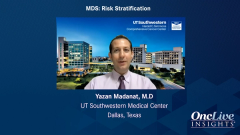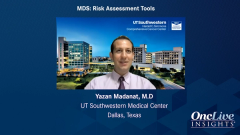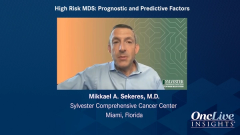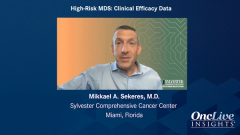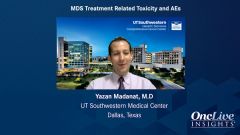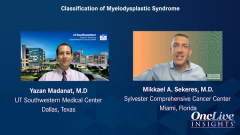
MDS Treatment Selection: Impact of QoL
Drs Madanat and Sekeres comment on the importance of quality of life and patient perspective in the selection of MDS treatment.
Episodes in this series

Yazan Madanat, MD: From your experience, do you see or talk to patients weighing quality-of-life factors with treatment toxicity and putting it all together? How do you see patients weigh all these things to make a decision about therapy? How much does quality of life impact that conversation and decision-making?
Mikkael A. Sekeres, MD: It has a pretty big impact. I try to think about it from my patients’ perspectives, because they’re making different decisions from me about how to approach this serious disease. At my age, I still have young kids at home who are school age, and I look at my role as a parent as to successfully usher my kids to adulthood. I’m going to accept any type of therapy for a diagnosis that’s going to get me to that point. Someone who’s 80 years old and has children has seen their children—and probably grandchildren—reach adulthood may have different goals and needs. My patients have narrowed their focus on their goals, just as in the book Being Mortal by Atul Gawande, when he writes about how folks, as they get older, narrow their focus to closer groups of friends and family and more immediate goals.
Even though we talk about hypomethylating agent–based therapy being very tolerable, some of my patients will say, “No, thanks. I don’t want to be in clinic for that many days out of every month.” Or if they’re leaning toward something even easier, like oral decitabine, they say, “No, I don’t want to deal with those adverse effects.” It impacts it much more than patients who are in their 60s who have higher-risk MDS [myelodysplastic syndromes], for example. My older patients are certainly much more hesitant about transplantation. We talk about it at every new diagnosis, but there’s only a small percentage of my patients who say, “Please book me an appointment with a transplant physician.” It’s not because I’m negative about transplant. I always encourage my patients to have a conversation and trust their gut from that conversation. A lot of them don’t even want to initiate the conversation
Transcript Edited for Clarity


